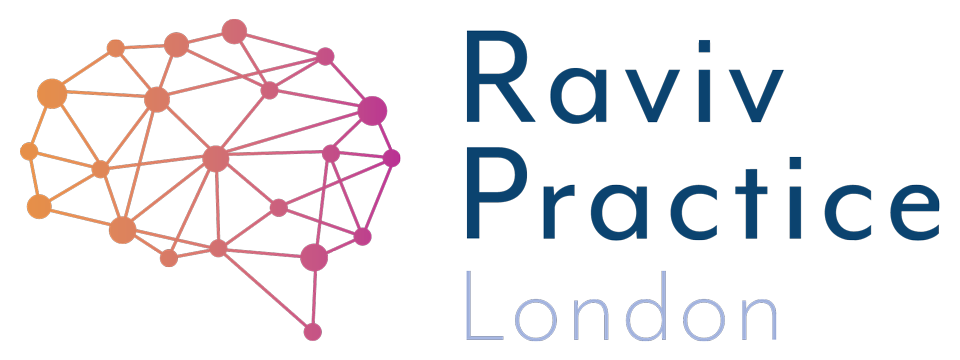The Happiness Advantage
A year ago, I started working with Charlotte. Like many adults I work with, Charlotte discovered her long-standing difficulties had been masked and only really surfaced after university life. During her childhood, she had received support for her dyslexia, dyspraxia and speech and language difficulties and this continued at university. With loving parents and a supportive network of teachers, she managed to secure a good degree at an excellent university and life could not have been better for an individual who had worked so hard. However, once the support was taken away, work-life was cruel and unforgiving. Charlotte found my practice after a spell of failed jobs, and we started six months of intensive neurocognitive therapy to bridge her developmental gaps.
With loving parents and a supportive network of teachers, she managed to secure a good degree at an excellent university and life could not have been better
By the ninth month, I was delighted to hear that she had found employment and was so pleased that she could cope with aspects such as time management, organisational skills and multi-tasking. It was all going to plan; I felt that this was another successful intervention.
Dyslexic individuals have a lifetime of doubting themselves.
No sooner had I thought this when I received a rather urgent WhatsApp message. Charlotte, a quiet, polite individual, seldom pushed me for immediate attention, unless it was serious. It was 6.30 pm and I had clocked off for the day. It was my time, and I was busy chopping, prepping for the evening meal. As I chopped away, I thought I should call her and ask her if it was urgent; it was so out of character. She had been in the new job for just two weeks; could this be another time where she was about to be sacked again? I started to worry. I put my chopping down and called her immediately.
Charlotte's gentle voice was cracking, and I could tell she was distraught. I asked what the matter was and if things were ok? She said that her team was small, and her boss was lovely. She was settling in, and it all seemed fine. Probing further I asked why she was so upset? She said she was petrified that it would be another abrupt ending and that this would be the fifth job where she would be dismissed.
How to change a habit of self-doubt
She revealed that every time her boss scheduled 'time to talk,' or said something like 'We need to discuss….' Charlotte went into a mini panic attack.
I asked her if her projects were being handed in on time: she said yes. I wondered if she was managing her time: she said yes. What about organising the various activities and keeping track of the deliverables, again she said she was managing ok. So, what was the problem I asked? She revealed that every time her boss scheduled 'time to talk,' or said something like 'We need to discuss….' Charlotte went into a mini panic attack. She would remember all the previous disasters with performance reviews going badly wrong and being frog marched out of the previous office by security guards after being abruptly dismissed. All these negative thoughts came flooding back. As she was talking, I was staring at the peppers in front of me in need of chopping, one red, one orange and one green. An idea popped up in my head. I said to Charlotte, why don't you measure your tasks on a traffic light system? Red for really bad, orange for pass and green for success? She agreed to this activity. I also said that when a boss gives urgent work, changes the brief or deviates from the original task, it would be best to let them know if her inability to deliver was being compromised by their management style. She thought this was a good idea and promised to give it a try.
When you can't remember things
Looking back, I knew Charlotte had done remarkably well in the last of the therapy interventions with me, using Cogmed Working Memory Training. Doing this training improved her ability to remember while thinking and being aware that she was on track with her work. Her emotions, however, had a tendency to dwell on negative thoughts. This negative thinking had got the better of her in this instance, tending to focus on past failures. After a couple of weeks of implementing my traffic light idea and seeing nearly all the tasks were marked in green it gave her a much-needed boost. This objective measure of true success helped her to relax, enjoy her job and be more cheerful.
Finally, success.
A few weeks later I was so delighted to hear she had passed her very first probation. Below is an extract of the message to me.
“ Hearing that I passed my probation was the biggest career milestone for me so far, and I owe so much to you. You really have changed my life for the better and I don’t think I can fully express how grateful I am for your support, patience and good humour”
Being happy
Being happy is critical for learning. When I work with individuals of any age, I try to improve their skills by working with their strengths. Being relaxed when we are faced with a challenge is paramount to keeping the higher cognitive centres online. The minute we start to panic, our stress responses kick in, and we lose the ability to think our way out of the problem. Stress is not all bad; judiciously applied small amounts of pressure can help our higher cognitive centres function effectively but not for prolonged periods, just enough to train a new behaviour.
Below is a wonderful TedX talk by Shawn Achor on positive psychology, I have watched this many times, and never fails to bring a smile to my face.
Shawn Achor lectures on positive psychology
How are your higher functioning skills?
If you would like to try our FREE quick self-check to see how yours/your child’s higher cognitive capacity is functioning, please click here.
This blog is edited by Mary Mountstephen with first draft by Nisha Patel
Dyslexia? Dyspraxia? ADHD? ASD? Speech & Language? Developmental Delay? Anxiety?
Is every school day a struggle? As a parent, you may feel exhausted and on this journey alone. Each year you see the gap getting wider. You need to do something - change the approach, help your child learn for themselves, find a way to turn this around - to help while you can - do this NOW. the first step is free.
About the Author
Usha Patel is a Neurocognitive Therapist and Director at Raviv Practice London. Parents searching to help their suspected/neurodiverse child can get evidence-based solutions with results in as little as 8 weeks. Those in search of jargon-free help can get started straight away.



